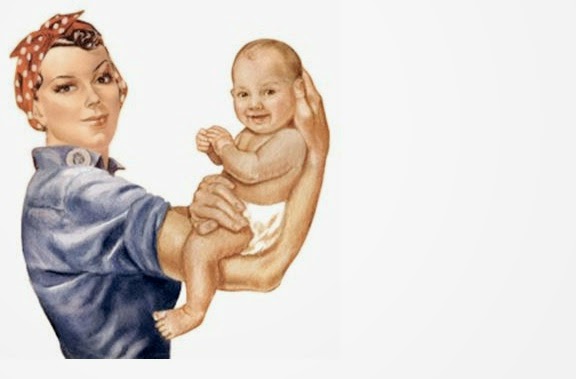General authorities have a lot to say about the innate qualities of women and their divinely appointed role here on earth. What happens if we flip the sexes in what they have to say about the topic? Do we have a nonsensical statement because the logic is gender dependent, or do we end up with a statement that still agrees with LDS thought because gender is irrelevant?
Let's look at the special musical number from last night's General Women's Conference that opened up the session. It's called "The Family Is of God" and it came out in 2008 as an anti-Proposition 8 propaganda tool to be applied in LDS primaries across the United States (and now the world). It picks up on the gender assignments found in "The Family: A Proclamation to the World", so predictably switching the gender references in the song will look a bit like my previous post. Here it is:
1. Our Mother has a family. It’s me!
It’s you, all others too: we are Her children.
She sent each one of us to earth, through birth,
To live and learn here in fam’lies.
[Chorus]
God gave us families to help us become what She wants us to be—
This is how She shares Her love, for the fam’ly is of God.
2. A mother’s place is to preside, provide,
To love and teach the gospel to her children.
A mother leads in fam’ly prayer to share
Their love for Mother in Heaven.
[Chorus]
3. A father’s purpose is to care, prepare,
To nurture and to strengthen all his children.
He teaches children to obey, to pray,
To love and serve in the fam’ly.
[Chorus]
4. I’ll love and serve my family and be
A good example to each fam’ly member.
And when I am a dad or mom, so glad,
I’ll help my fam’ly remember:
[Chorus]
First off, changing "Our Father" to "Our Mother" gives LDS Mormons a big headache because the Church teaches next to nothing about Her. In fact, we don't know if it's a "Her" or a "Them" (every orthodox Mormon has to admit that Heavenly Father might be a polygamist). This possibility - that God has at one or more wives who are banished from showing their faces around their children - already screams sexism. On the positive side, changing "Our Father" to "Our Mother" somehow renders the song just that much more poignant and pleasing. I honestly prefer it.
As for the second verse, I say why the fuck not? Mothers can be just as good as managing people and earning money as father can. If that's where a mother's skill set lies, why not let her use and develop those skills? Denying women that opportunity based on their having a vagina is sexist and culturally damaging.
The third verse makes just as much sense as it did when it addressed mothers. What does that mean? That the gender reference is poorly conceived. There is no truth to be learned from it. What is should say instead is that the purpose of a "parent" is to care, etc. Then again, aren't we all supposed to be caring about and strengthening each other?
The only problem with the fourth verse is that it assumes every child will become a parent one day. That's not how it works. Some people never find a partner, some couples are infertile, other couples don't want children and other couples are simply too irresponsible to properly look after children (I have several relatives who fit this last category). The amazing thing about all of this is that the rest of the session was spent pointing out many of these very exceptions.
Where is the wisdom in memorizing and singing this song? Why should we bother teaching it to children when it's sexist and not logically sound? Why be part of the Church's knee-jerk reaction to homosexual marriage being legalized in California? We can think for ourselves.
As for the second verse, I say why the fuck not? Mothers can be just as good as managing people and earning money as father can. If that's where a mother's skill set lies, why not let her use and develop those skills? Denying women that opportunity based on their having a vagina is sexist and culturally damaging.
The third verse makes just as much sense as it did when it addressed mothers. What does that mean? That the gender reference is poorly conceived. There is no truth to be learned from it. What is should say instead is that the purpose of a "parent" is to care, etc. Then again, aren't we all supposed to be caring about and strengthening each other?
The only problem with the fourth verse is that it assumes every child will become a parent one day. That's not how it works. Some people never find a partner, some couples are infertile, other couples don't want children and other couples are simply too irresponsible to properly look after children (I have several relatives who fit this last category). The amazing thing about all of this is that the rest of the session was spent pointing out many of these very exceptions.
Where is the wisdom in memorizing and singing this song? Why should we bother teaching it to children when it's sexist and not logically sound? Why be part of the Church's knee-jerk reaction to homosexual marriage being legalized in California? We can think for ourselves.























